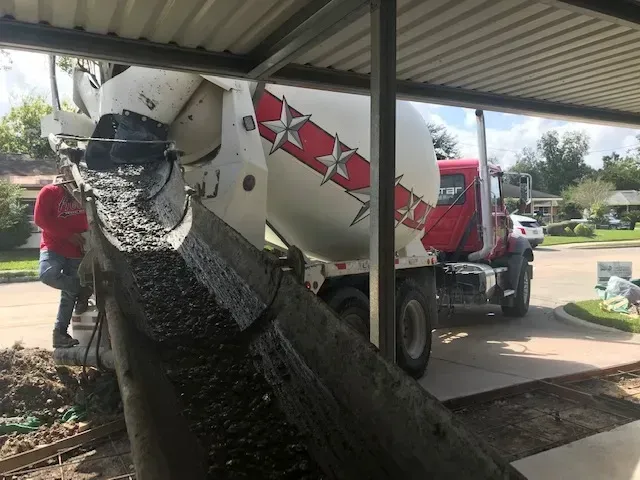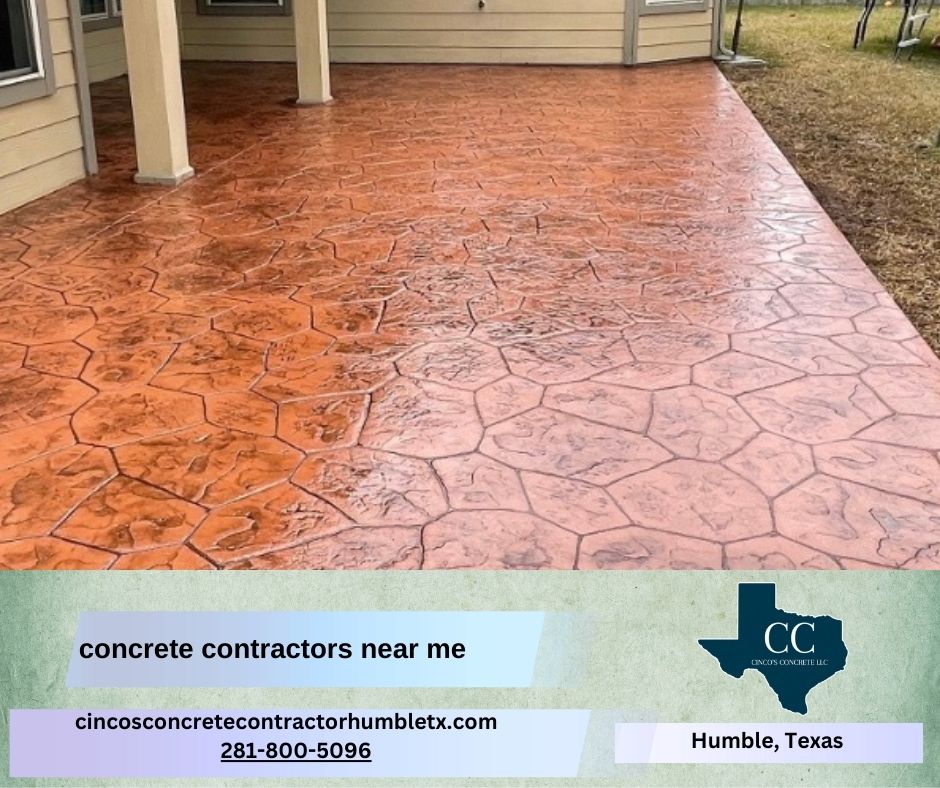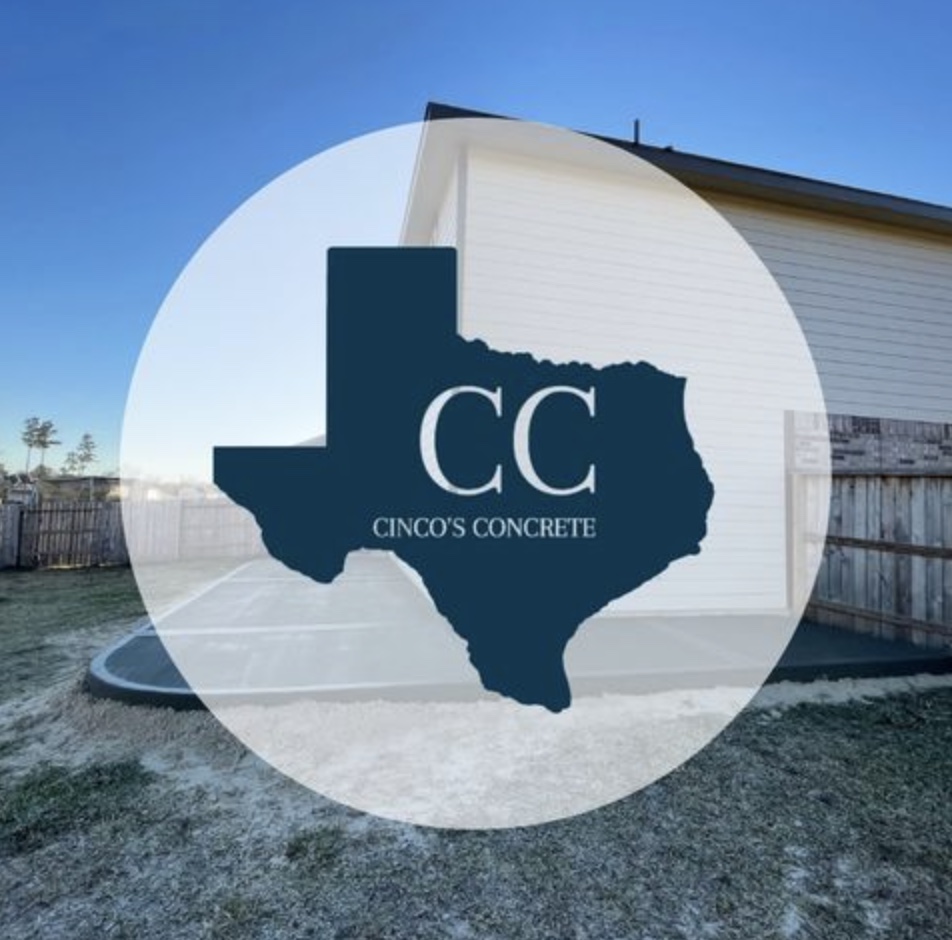
What is the price of concrete?
What is the Price of Concrete? Decoding the Costs of Your Concrete Project
The price of concrete is not a fixed number; rather, it's a dynamic figure influenced by a multitude of factors, ranging from the raw materials themselves to the complexity of the installation, labor rates, and even the local market conditions.
For homeowners and businesses in areas like Houston, Humble, Spring, and Atascocita, Texas, understanding these variables is key to budgeting effectively and ensuring a fair price for their concrete project.
Many people initially think of concrete as just "cement," but it's a composite material made from cement, aggregates (sand and gravel), water, and sometimes admixtures. Each of these components has its own cost, which fluctuates based on supply and demand, transportation, and quality.
Beyond the raw material, the process of concrete construction, as we've explored previously, involves skilled labor, specialized equipment, site preparation, and numerous finishing options, all contributing to the final price tag.
At Cincos Concrete, with over 20 years of experience serving the Houston metropolitan area, we understand the intricacies of concrete pricing better than most. We believe in transparency and educating our clients so they can make informed decisions.
Our estimates reflect not just the cost of materials but the comprehensive value of professional expertise, efficient project management, and a lasting, high-quality result.
This article will delve deep into the question: "What is the price of concrete?" We'll break down the various cost components, discuss the key factors that influence pricing, explore average costs for different types of concrete projects, and provide insights into how to get an accurate estimate for your specific needs.
Understanding the Basic Units of Concrete Pricing
To begin, it's important to understand how concrete is typically measured and priced.
Concrete by the Cubic Yard
Ready-Mix Concrete: When ordering concrete from a ready-mix plant, it's almost always sold by the cubic yard. A cubic yard is a volume measurement equal to 27 cubic feet (3 feet x 3 feet x 3 feet).
Average Cost: The base price for a cubic yard of standard ready-mix concrete can range from $110 to $180, with regional variations. In Texas, for example, it might fall in the $110-$140 range per cubic yard. This is just for the material itself, delivered to your site.
"Short Load" Fees: If you order less than a full truckload (which is typically 8-10 cubic yards), ready-mix companies often charge a "short load fee," which can add an extra $40 to $150 or more to the delivery. This is why accurately calculating the required volume is crucial.
Concrete Projects by the Square Foot
Installed Price: When you receive a quote for a concrete driveway, patio, or slab, the price is most commonly presented as a cost per square foot, which includes both materials and labor for the entire installation.

Varying Costs: This per-square-foot cost can vary significantly depending on the project type, thickness, finish, and complexity. For a basic concrete slab, installed costs typically range from $6 to $12 per square foot.
Material vs. Labor Split: Generally, labor costs tend to be a larger portion of the total project price for concrete work, often making up 60-70% of the total, while materials account for the remaining 30-40%. This reflects the skill and effort required for site prep, forming, pouring, and finishing.
Key Factors Influencing the Price of Concrete
The final price you pay for concrete construction is a sum of many parts. Understanding these influencing factors can help you anticipate costs and evaluate quotes.
1. Concrete Mix Design and Quality
Standard Mixes: A basic concrete mix (e.g., 2500 PSI or 3000 PSI) is the most economical. It's suitable for light-duty applications like sidewalks, residential patios, and shed foundations.
Higher Strength Mixes: Concrete designed for higher compressive strength (e.g., 4000 PSI and above) or specific performance needs (like high early strength, sulfate resistance, or low shrinkage) will cost more due to specialized cement, aggregates, and admixtures. These are essential for foundations, heavy-duty driveways, and commercial applications.
Admixtures: Chemical additives like air-entraining agents (for freeze-thaw resistance), water reducers (for stronger concrete with less water), retarders (to slow setting in hot weather), or accelerators (to speed setting in cold weather) add to the mix cost.
2. Project Size and Volume
Economy of Scale: Generally, the larger the project in terms of cubic yards or square footage, the lower the per-unit cost tends to be. Ready-mix plants offer volume discounts, and fixed costs like mobilization, permitting, and equipment setup are spread over a larger area.
Minimum Charges: For very small jobs (e.g., less than 1-2 cubic yards), the cost per cubic yard can be disproportionately high due to short load fees and minimum labor charges.
3. Concrete Thickness
Material Volume: The thicker the concrete slab, the more cubic yards of concrete material are required. A 6-inch thick slab requires 50% more concrete than a 4-inch slab of the same area, significantly increasing material cost.
Typical Thicknesses: Residential patios and sidewalks are often 4 inches thick. Driveways typically range from 4 to 6 inches, depending on expected vehicle load. Foundations and garage slabs are often 6 inches thick or more, and commercial slabs can be much thicker.
4. Reinforcement Needs
Wire Mesh: Welded wire mesh is an economical option for basic reinforcement, costing around $0.35 - $1.00 per square foot additional. It helps control minor cracking.
Rebar (Reinforcing Bar): Steel rebar provides superior tensile strength and is essential for structural concrete, foundations, and heavy-duty slabs. The cost depends on the rebar size, spacing, and complexity of the layout, typically adding $1 to $3 per square foot or more.
Fiber Mesh: Synthetic fibers can be added to the concrete mix to provide supplementary internal reinforcement, helping to reduce plastic shrinkage cracking. This is an additional cost per cubic yard.
5. Site Preparation and Accessibility
Excavation and Grading: If the site requires extensive clearing, demolition of existing concrete, significant excavation, or substantial grading to achieve the correct elevation and slope, these costs will add to the overall price. Costs for leveling or regrading can range from $0.40 to $2.00 per square foot.
Sub-base Material: The cost of gravel or crushed stone for the sub-base, including delivery and spreading, is a separate line item, usually $1 to $3 per square foot or $10 to $50 per ton.

Accessibility: Difficult access to the job site (e.g., a backyard with narrow gates, sloped terrain, or obstacles) can increase labor costs and may necessitate the use of a concrete pump, which adds to equipment rental fees.
6. Labor Costs
Skill Level and Experience: Experienced and highly skilled concrete finishers command higher wages, but their expertise leads to a superior, more durable, and aesthetically pleasing result.
Project Complexity: Intricate designs, multiple elevation changes, complex formwork, or specialized finishes require more labor hours and specialized skills, increasing labor costs.
Hourly vs. Per Square Foot: Labor costs are often factored into the per-square-foot installed price, but they can range from $3 to $5 per square foot on average, or $45 per hour for individual crew members.
Regional Differences: Labor rates vary by geographical region. For example, labor costs in the Houston, TX area for concrete work can range from $6 to $12 per square foot, compared to higher rates in some other states.
7. Finishing Options
Basic Finishes: A standard broom finish (textured for slip resistance) or a smooth trowel finish (for garages or interior slabs) are typically included in the base per-square-foot price.
Decorative Finishes: These significantly increase the cost due to the additional labor, materials (color pigments, release agents), and specialized tools involved.
Colored Concrete: Adding pigments to the concrete mix or applying topical stains can add $3 to $15 per square foot.
Stamped Concrete: This process involves pressing patterns into wet concrete to mimic natural stone, brick, or wood. Stamped concrete costs typically range from $12 to $30 per square foot installed, depending on the complexity of the pattern and number of colors.
Exposed Aggregate: Washing away the top layer of cement paste to expose decorative aggregates adds visual appeal and texture, typically costing $10 to $16 per square foot.
Polished Concrete: A multi-step grinding and polishing process creates a smooth, high-gloss surface, often used for interior floors, costing $3 to $15 per square foot (not including the slab itself).
8. Location and Delivery Fees
Proximity to Suppliers: The closer your site is to a ready-mix plant, the lower the transportation costs will be.
Fuel Costs: Fluctuations in fuel prices directly impact delivery charges.
Rural vs. Urban: Urban areas might have higher demand and labor costs, but rural areas could face higher transportation fees for concrete delivery.
9. Equipment Rental
Concrete Pumps: For large or hard-to-access pours, a concrete pump can save significant labor time but adds an hourly or cubic yard rental fee. Concrete pump rental can cost $150 to $500 per day, or $230 to $300 per hour for larger boom pumps, often with a 3-4 hour minimum.

Other Equipment: Costs for excavators, skid steers, power trowels, and vibrators are usually factored into the overall project cost or hourly labor rates.
10. Permits and Inspections
Varying Fees: Permit fees are required by local authorities for most significant concrete projects (especially driveways, foundations, and large patios). These fees vary widely by location and project type, typically ranging from $50 to $500.
Compliance: Obtaining permits and passing inspections ensures the concrete work adheres to local building codes, preventing potential issues or fines down the line.
11. Concrete Removal and Disposal (for Replacement Projects)
Added Cost: If you're replacing existing concrete, the old material must be broken up and hauled away. This is a separate cost from pouring new concrete.
Per Square Foot: Concrete removal costs typically range from $3 to $8 per square foot, including labor and disposal fees. This can significantly increase the total project price for replacements compared to new installations on a clear site.
Average Costs for Specific Concrete Projects (Installed)
While prices always vary, here are some general cost ranges for common concrete projects, including materials, labor, and basic finishes.
1. Concrete Slabs (General Purpose)
Cost: $6 to $12 per square foot
Typical Uses: Shed foundations, small patios, equipment pads.
Details: Assumes 4-6 inches thick, basic finish, and minimal reinforcement. Larger or thicker slabs will be at the higher end or exceed this range.
2. Concrete Driveways
Cost: $6 to $12 per square foot for a standard broom finish.
Standard Size: A typical two-car driveway (around 400-600 sq ft) might cost between $2,400 to $7,200 for a basic installation.
Factors: Driveway thickness (often 4-6 inches), amount of reinforcement (rebar is highly recommended), and any decorative elements (stamped, colored) will push the price higher. Stamped driveways can range from $15 to $28+ per square foot.
3. Concrete Patios
Cost: $4 to $16 per square foot for a basic broom or smooth finish.
Factors: Patios offer a wide range of aesthetic possibilities. Basic square or rectangular patios are less expensive. Intricate shapes, multiple levels, and especially decorative finishes (stamped, colored, polished, exposed aggregate) will significantly increase the cost.
Decorative Patio Costs: Stamped patios often range from $12 to $21 per square foot.
4. Concrete Foundations (Slab-on-Grade)
Cost: $6 to $14 per square foot.
Typical Home: For a 2,000-square-foot home, a slab foundation could cost $12,000 to $28,000.
Details: Foundations are highly engineered and require significant reinforcement (rebar), proper grading, and often vapor barriers and foam insulation. These are critical structural elements, and skimping on quality here is not advisable.

5. Concrete Sidewalks and Walkways
Cost: $6 to $12 per square foot for a standard sidewalk.
Factors: Similar to patios and driveways, decorative options like stamped or colored concrete will increase the price. Walkways might be narrower and simpler than driveways but still require careful subgrade preparation.
6. Decorative Concrete Finishes (Additional Cost on top of basic slab)
Stamped Concrete: Adds $8 to $20 per square foot (on top of the base concrete cost). Total installed $12-$30 per square foot.
Colored Concrete: Adds $3 to $15 per square foot.
Polished Concrete: Adds $3 to $15 per square foot (for the polishing process, not including the slab).
Exposed Aggregate: Adds $4 to $8 per square foot.
Getting an Accurate Concrete Price Estimate
Given the numerous variables, getting a precise estimate for your specific concrete project is crucial. Here's how to approach it:
1. Accurately Measure Your Project
Dimensions: Know the length, width, and desired thickness of your proposed concrete area. This allows contractors to calculate the cubic yardage needed.
Existing Conditions: Be ready to describe the current state of the site – is there existing concrete to remove? Is it a clear, flat area, or does it require extensive excavation or grading?
2. Define Your Desired Finish
Basic vs. Decorative: Clearly state whether you want a standard broom finish, a smooth finish, or a decorative option like stamped or colored concrete. Have examples or pictures if possible.
3. Ask for Detailed Quotes
Breakdown: Request a breakdown of the costs. A good quote should itemize expenses for:
Site preparation (excavation, grading, demolition if needed)
Sub-base materials
Formwork
Concrete material (cubic yards and PSI)
Reinforcement (type and amount)
Placement and finishing (type of finish)
Curing methods
Joints (control and expansion)
Permit fees
Cleanup and disposal
Any additional services (e.g., sealing, pump rental)
4. Get Multiple Quotes
Comparison: Obtain at least three quotes from reputable concrete contractors. This helps you compare pricing, proposed methods, and scope of work.
Not Just Price: While price is important, don't choose solely on the lowest bid. Evaluate the contractor's experience, reputation, references, and insurance. A suspiciously low bid might indicate a lack of proper permits, insurance, or an intention to cut corners.
5. Consider the Long-Term Value
Durability and Longevity: Investing in professional concrete work with quality materials and proper techniques pays off in the long run. A well-installed concrete surface will last for decades, requiring minimal maintenance and fewer repairs.
Curb Appeal and Property Value: High-quality concrete, especially with appealing decorative finishes, can significantly enhance your property's curb appeal and overall value.
Cincos Concrete: Transparent Pricing for Quality Concrete in Texas
At Cincos Concrete, we understand that the price of concrete is a significant consideration for any project. With over 20 years of dedicated service in Houston, Humble, Spring, and Atascocita, Texas, we pride ourselves on providing clear, comprehensive, and competitive pricing.
We ensure our clients know exactly what they're paying for. Our estimates are detailed, breaking down the costs associated with each phase of your concrete construction project, from site preparation to the final touches and necessary curing. We factor in local material costs, labor rates for our skilled crews, and the specific requirements of the Texas environment.

Our longevity in the Houston market is a testament to our commitment to fair pricing coupled with uncompromising quality. We invest in the right equipment and continuous training for our team to ensure efficiency and excellence, which ultimately translates to better value for our clients. We don't just pour concrete; we build durable, beautiful, and functional concrete solutions that stand the test of time.
When you're asking "What is the price of concrete?" for your next project, remember that it's an investment. An investment in a solid foundation, a beautiful outdoor living space, or a durable commercial surface. Choose a contractor who offers transparency, expertise, and a proven track record of delivering value.
Ready to get a precise and transparent quote for your concrete needs in the Houston area?
Contact Cincos Concrete today for a free, no-obligation estimate. Let our two decades of experience and commitment to quality be the solid foundation for your project's success.
Call us anytime, 24/7, at 281-800-5096!
Visit our website to see our portfolio and learn more about our commitment to excellence: https://cincosconcretecontractorhumbletx.com/
